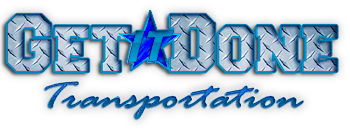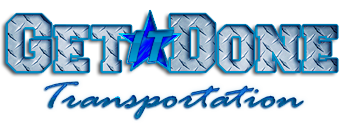Introduction: Understanding The Regulations On Transporting Modified Vehicles
Transporting a modified vehicle can be a complex and challenging task due to various regulations and restrictions imposed by authorities. Whether you have customized your vehicle for personal preference or performance enhancements, it is crucial to comprehend the legalities surrounding its transportation. This subtopic aims to provide an overview of the regulations governing the transportation of modified vehicles, ensuring that you are well-informed before undertaking such a venture.
Firstly, it is important to understand that regulations regarding modified vehicles may vary from one jurisdiction to another. Different countries, states, or even municipalities may have their own specific rules and requirements. These regulations often focus on safety standards, emissions compliance, and roadworthiness assessments. Furthermore, transporting a modified vehicle may require complying with additional documentation and permits. Authorities typically require detailed information about the modifications made to the vehicle along with proof of compliance with safety standards.
Failure to adhere to these regulations could result in fines or even confiscation of the vehicle. In conclusion, comprehending the regulations on transporting modified vehicles is essential before embarking on such a journey.
What Constitutes A Modified Vehicle?
A modified vehicle refers to any automobile that has undergone alterations or enhancements to its original design or performance. These modifications can vary significantly, ranging from minor cosmetic changes to extensive mechanical upgrades. Common modifications include changes to the engine, suspension, exhaust system, body kit installation, and customization of interior features.
Engine modifications typically involve increasing horsepower and torque through alterations such as turbocharging or supercharging. Suspension modifications aim to improve handling and ride quality by lowering or raising the vehicle’s height and installing specialized components. Custom exhaust systems are often added for enhanced sound and performance.
Body kits are popular modifications that alter the exterior appearance of a vehicle, including spoilers, side skirts, and redesigned bumpers. Interior customization may involve upgrading seats, installing audio systems or navigation devices, and adding unique lighting features.
It is important to note that these alterations can impact the overall safety, legality, and functionality of a vehicle. Therefore, when considering transporting a modified vehicle, it is crucial to understand the specific modifications made and whether they comply with transportation regulations in your area.
Researching The Legal Requirements For Transporting Modified Vehicles
Transporting a modified vehicle can be a complex process, as it involves adhering to various legal requirements. Before embarking on transporting your modified vehicle, it is crucial to thoroughly research and understand the specific regulations applicable in your jurisdiction. The first step in researching the legal requirements is to consult your local Department of Motor Vehicles (DMV) or equivalent agency. They will provide valuable information about the necessary permits, licenses, and documentation you need to transport a modified vehicle legally.
Additionally, they can inform you about any restrictions or guidelines that apply to transporting such vehicles. It is also essential to familiarize yourself with federal regulations if you plan on crossing state lines during transportation. The Federal Motor Carrier Safety Administration (FMCSA) sets guidelines for commercial vehicles’ transportation but may have relevant information regarding modified vehicles as well. Furthermore, it is advisable to consult legal professionals specializing in transportation law or automotive regulations.
They can help navigate through complex laws and ensure compliance with all necessary requirements.
Obtaining Necessary Permits And Documentation For Transport
When it comes to transporting a modified vehicle, obtaining the necessary permits and documentation is crucial. Whether you are moving the vehicle across state lines or internationally, certain legal requirements must be met to ensure a smooth and hassle-free transport process. Firstly, it is essential to check with the local Department of Motor Vehicles (DMV) or transportation authorities to understand the specific regulations governing modified vehicles in your area.
They can provide guidance on any restrictions or additional permits needed based on the modifications made. Additionally, it may be necessary to obtain an oversize/overweight permit if your modified vehicle exceeds the standard dimensions allowed for road transportation. This permit ensures that you are compliant with weight limits and safety regulations during transport. Furthermore, documenting all modifications made to the vehicle is critical.
This includes retaining records of any alterations done to its structure, engine, or other components. These records will not only help you provide accurate information during the transport process but also serve as proof of compliance with legal requirements.
Ensuring Compliance With Safety Standards And Regulations
When it comes to transporting a modified vehicle, ensuring compliance with safety standards and regulations is of paramount importance. Modified vehicles often undergo significant alterations that can impact their structural integrity, performance, and safety features. Therefore, it is crucial to adhere to specific guidelines to guarantee the safe transportation of such vehicles. Firstly, it is essential to consult local transportation authorities or regulatory bodies to determine the specific requirements for transporting modified vehicles.
These may include obtaining special permits or licenses based on the nature and extent of modifications made. Secondly, before transporting a modified vehicle, it should undergo a thorough inspection by certified professionals who can assess its compliance with safety standards. This inspection should encompass all aspects affected by modifications, including brakes, suspension systems, lighting equipment, exhaust systems, and any other relevant components.
Additionally, ensuring that the vehicle’s paperwork is in order is crucial. This includes having updated registration documents reflecting the modifications made and any necessary certifications or approvals obtained from authorized agencies.
Securing Proper Insurance Coverage For Transported Modified Vehicles
When it comes to transporting a modified vehicle, ensuring you have the appropriate insurance coverage is of utmost importance. Modified vehicles often have unique features, enhancements, or alterations that may not be covered under standard auto insurance policies. Therefore, it becomes crucial to obtain specialized insurance coverage specifically designed for these types of vehicles during transportation. Standard auto insurance policies typically provide coverage for damages that occur while driving the vehicle on public roads.
However, during transportation, the risks and potential damages can differ significantly. Transporting a modified vehicle involves various hazards such as loading and unloading mishaps, theft or vandalism during transit, or damage caused by other vehicles sharing the road. To adequately protect your investment and ensure peace of mind throughout the transportation process, it is recommended to consult with an experienced insurance agent who specializes in modified vehicles.
They can guide you in selecting an appropriate policy that covers all potential risks associated with transporting your modified vehicle. By securing proper insurance coverage for transported modified vehicles, owners can safeguard against potential financial losses arising from unforeseen circumstances during transit.
Hiring A Professional Vehicle Transportation Service Vs. Self-Transportation
When it comes to transporting a modified vehicle, you may find yourself wondering whether to hire a professional vehicle transportation service or handle the task yourself. Both options have their pros and cons, and understanding them can help you make an informed decision. Hiring a professional vehicle transportation service offers several advantages. First and foremost, these companies specialize in handling the transportation of vehicles, including modified ones.
They have the necessary expertise and equipment to ensure safe and secure transport. Additionally, professional services often provide insurance coverage for any potential damages that may occur during transit, giving you peace of mind. On the other hand, self-transportation allows you to have more control over the process. If you are knowledgeable about handling modified vehicles and have access to suitable transport equipment like trailers or car carriers, this option can save you money.
However, it is essential to consider factors such as your driving skills, distance of transportation, and potential risks involved in maneuvering a modified vehicle. Ultimately, the choice between hiring professionals or self-transporting depends on your specific circumstances.
Preparing Your Modified Vehicle For Safe Transportation
Transporting a modified vehicle requires careful preparation to ensure its safe arrival at its destination. Follow these steps to properly prepare your modified vehicle for transportation:
1. Document Modifications: Start by thoroughly documenting all the modifications made to your vehicle. Take clear photographs from various angles, noting any custom features or alterations. This documentation will serve as a reference point and can be used for insurance purposes if needed. 2. Remove Personal Belongings: Before transporting your modified vehicle, remove all personal belongings from the interior and trunk.
This includes loose items, aftermarket accessories, and removable parts that could get damaged or lost during transportation. 3. Secure Loose Parts: Inspect your vehicle thoroughly and ensure that any loose parts are securely fastened or removed altogether. This includes spoilers, body kits, antennas, or any other detachable components that may pose a risk during transit. 4. Protect Vulnerable Areas: Apply protective coverings or padding to vulnerable areas of your modified vehicle such as custom paintwork, delicate bodywork modifications, or fragile components like side mirrors or exhaust pipes.
Conclusion: Successfully Navigating The Process Of Transporting A Modified Vehicle
Transporting a modified vehicle can be a complex and challenging process, but with careful planning and preparation, it is possible to navigate through it successfully. Whether you have made significant modifications to enhance its performance or simply customized its appearance, understanding the regulations, documentation requirements, and logistics involved is crucial. Firstly, it is essential to research and comply with the regulations specific to your country or state.
Familiarize yourself with any legal restrictions on modified vehicles for transport and ensure that your modifications adhere to these guidelines. Additionally, contacting your local transport authorities or consulting an expert in vehicle transportation can provide valuable guidance on navigating the process smoothly. Secondly, proper documentation plays a vital role in transporting a modified vehicle. Ensure that you have all necessary paperwork readily available, including proof of ownership, insurance coverage for transit, relevant permits or licenses for modifications made if required by authorities, and any other relevant documentation specified by the transport company.
Lastly, selecting a reputable transport company experienced in handling modified vehicles is essential.







